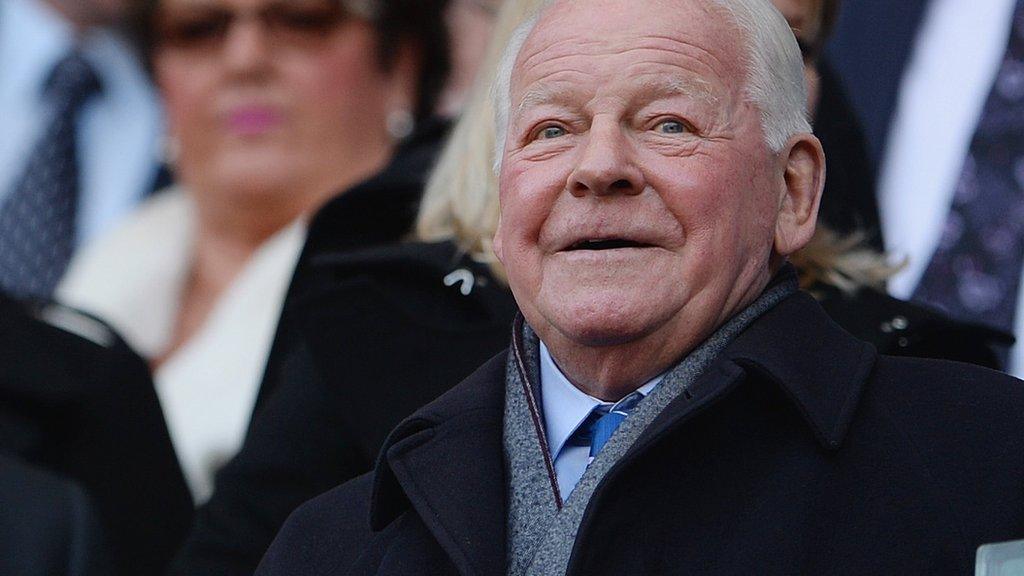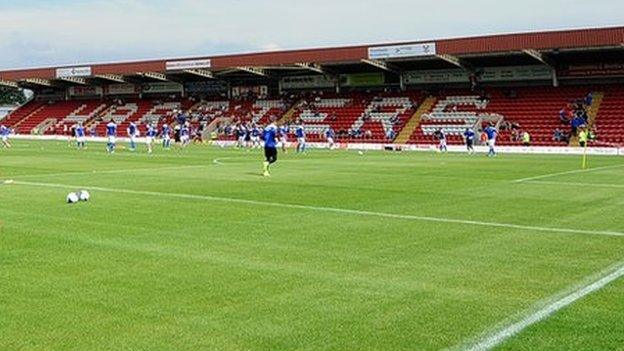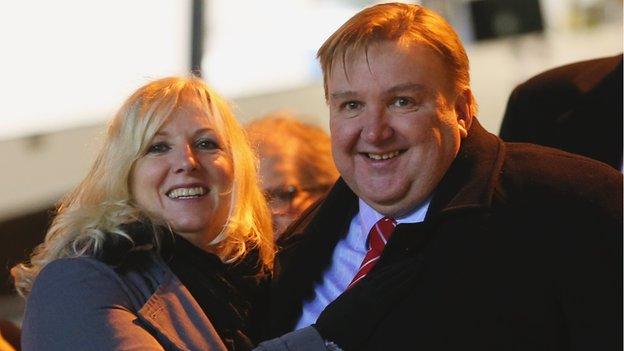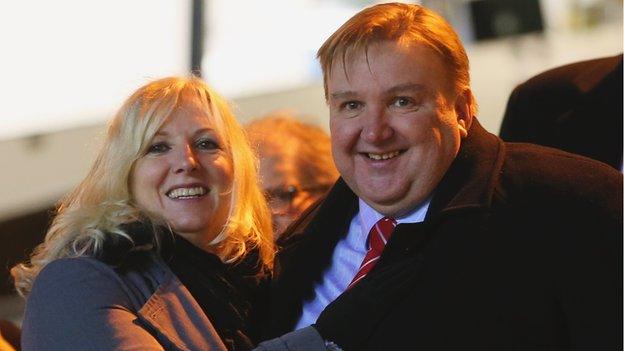Kidderminster Harriers: Full-time playing staff for Conference club
- Published

Aggborough staged Football League action for five years after the Harriers won the Conference in 2000
Kidderminster Harriers have opted to stay full-time next season after a much-needed cash injection which has guaranteed their staff wages being paid until the end of the current campaign.
But the Conference club, who have struggled to pay their wages in full, have warned manager Gary Whild that he will have a reduced playing budget.
Following Monday's Annual General Meeting, the club issued a statement.
It said that benefactors Ernie and Kath Lane will cover the staff's wages.
That arrangement will remain in place until the end of the season - and the club want to "place on record their thanks for their contribution".
Conference attendances in 2014-15 |
|---|
The best-supported team in the Conference this season are Bristol Rovers, who average 6,106 for home gates this season. |
Only five other Conference top-flight clubs have an average gate in excess of 2,000 - all former Football League clubs, Grimsby Town (3,539), Wrexham (3,343), Lincoln City (2,667), Chester (2,221) and Torquay United (2,169). |
It also stated that all staff will be paid their outstanding wages by the end of this week, and that there will be a fans' forum, involving chairman Ken Rae and his board of directors, before the end of the season.
Harriers currently stand ninth in the Conference, with 10 games left, following an untimely run of just one goal in a winless five-game run has seen them slip 10 points adrift of the play-off places.
The Worcestershire side's current problems stem from a drop in attendances this season, exacerbated by a run of five home league games during which they have averaged gates of 1,845.
There are now understood to be more part-time clubs in the Conference top flight, who still train two nights per week - namely AFC Telford United, Nuneaton Town, Braintree, Welling United, Altrincham and Alfreton - than was the case a decade ago.
Chester and Southport are two of a growing number of clubs who train during the day, three times a week.
- Published3 March 2015

- Published3 March 2015

- Published3 March 2015

- Published3 March 2015

- Published2 March 2015

- Published22 February 2014

- Published17 January 2014
